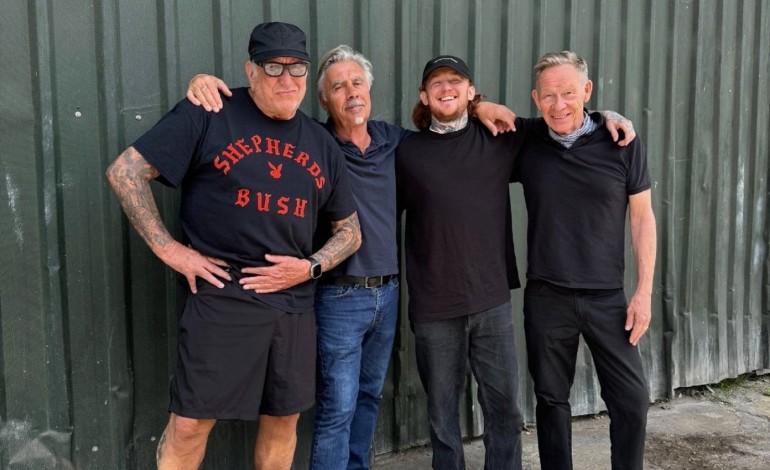
Three days ahead of their performance at London’s Royal Albert Hall for the Teenage Cancer Trust, the Sex Pistols stunned fans with an intimate surprise gig at the iconic 100 Club. The small venue, once a hub of punk rebellion in the late ‘70s, hosted the legendary band on Friday night (March 22) under the pseudonym “The Spots” — short for “Sex Pistols On Tour Secretly.” This nod to their past referenced the alias they used to avoid authorities during their controversial early days.
The unannounced show attracted a mix of devoted fans and well-known faces, including Paul Weller, Noel Gallagher, Gary Kemp, and Bobby Gillespie. Leading the charge was Frank Carter, former frontman of Gallows and Rattlesnakes, who stepped in for John Lydon. Lydon’s absence stems from an ongoing feud with the band over the use of their music in the Disney+ series Pistol, based on guitarist Steve Jones’ autobiography. Despite Lydon’s legal challenge, Jones, drummer Paul Cook, and bassist Glen Matlock reunited for a setlist packed with punk anthems.
Launching into ‘Pretty Vacant’, ‘God Save the Queen’, ‘Holidays in the Sun’, and ‘Anarchy in the UK’, the band’s performance was electric. Carter’s fierce stage presence channeled the raw energy the Sex Pistols are known for, while the remaining members proved their chemistry was as sharp as ever. Following last year’s successful reunion shows at Bush Hall, the positive reception from both fans and critics has now paved the way for a full-scale world tour.
Watch on TikTok
Friday’s show may have embraced nostalgia, but Sunday’s Albert Hall performance brought a sense of rebellion to an unexpected setting. The grandeur of the 150-year-old venue, originally opened by Queen Victoria, provided a surreal backdrop for the anarchic spirit of punk. Once symbols of defiance, the Sex Pistols now stood on one of Britain’s most prestigious stages, making the moment feel both ironic and iconic.
The audience included punk pioneers like The Clash’s Paul Simonon, alongside modern artists such as Chrissie Hynde and Yungblud. Witnessing the Pistols blast through their set beneath the venue’s ornate domes was a testament to punk’s lasting influence.
While Lydon dismissed the new line-up as the “karaoke Sex Pistols,” the band’s undeniable energy and tight sound told a different story. Jones’ guitar snarled through the speakers, Cook’s relentless drumming drove each track, and Matlock’s signature basslines pulsed with vigor. Carter’s gritty vocals may have surprised some, but his presence won over both fans and skeptics.
But the Sex Pistols’ return is about more than nostalgia. It’s a deliberate reminder of their power as a live band. For Jones, Cook, and Matlock, these shows are an opportunity to challenge the caricature that the band became under the influence of former manager Malcolm McLaren. Instead, they are proving that the Pistols were never just a product of punk mythology — they were a force of musical rebellion.
Closing with the furious chords of ‘Anarchy in the UK’, the Sex Pistols left no doubt that their legacy endures. Nearly 50 years on, their sound remains as fierce and relevant as ever.
